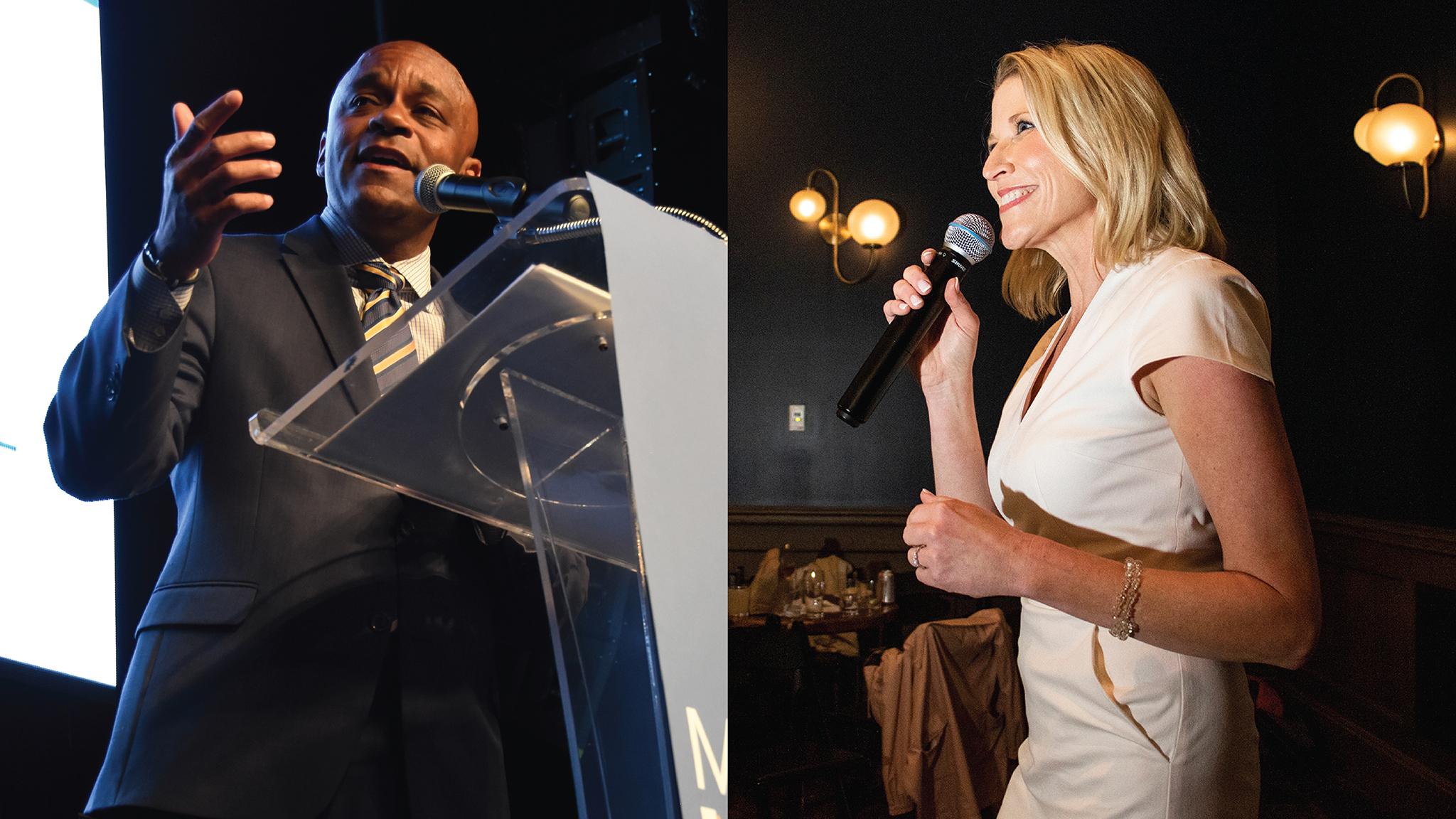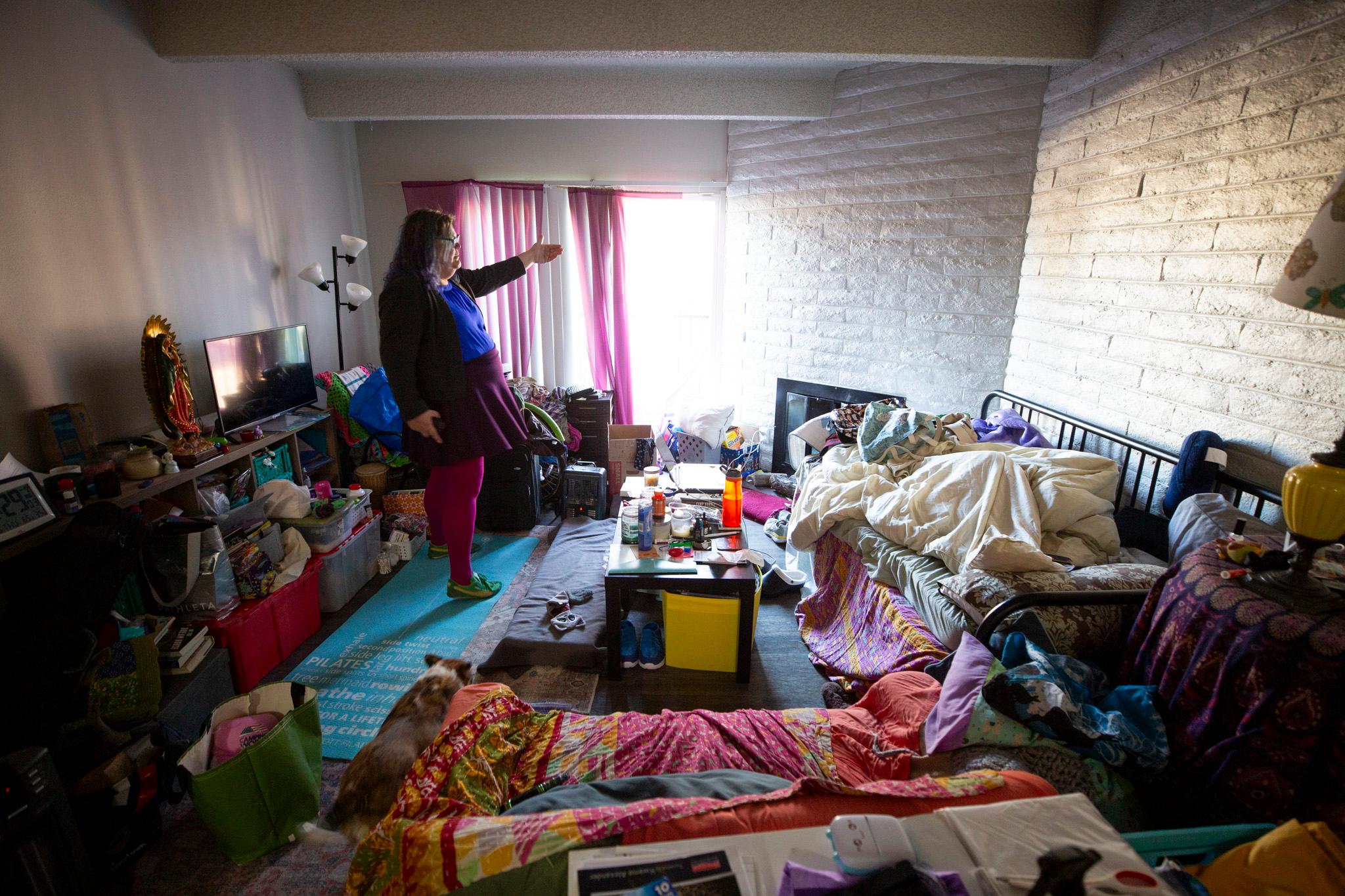A narrowed race for mayor has resulted in a narrowed focus on the character of the last candidates standing -- Mayor Michael Hancock and challenger Jamie Giellis -- with sexual harassment and race emerging as each candidate's weapon of choice.
Giellis and Hancock have continued to debate policy, but personality has overshadowed those discussions in the final weeks of the runoff.
Political contests go negative all the time, obviously, but Metropolitan State University urban politics professor Robert Preuhs says nonpartisan, municipal races aren't typically so explicit in their rhetoric. The Giellis-Hancock showdown is, Preuhs said, because it's an easy way to distinguish the candidates in a close race.
He pointed to Giellis's and Hancock's stances on the urban camping ban, which are technically different, but remarks from Giellis have caused confusion.
"The bottom line is, what you're trying to do is make it difficult to vote for the other candidate, and I think to some extent much of the policy differences aren't as clear to voters," Preuhs said.
Since the head-to-head runoff began, Giellis has done her best to remind voters of Hancock's harassing texts to Leslie Branch-Wise, a police detective and former member of his security detail.
And Hancock has helped her, suggesting during a debate Tuesday that Branch-Wise was complicit in the text exchanges.
"The reason why I said it was never sexual harassment is because you don't see the back-and-forth conversation that occurred," Hancock said.
He later issued an apology -- on the same day Branch-Wise endorsed Giellis and called the mayor a "pitiful, desperate liar" at a press conference.
Women are not the only segment of voters being targeted by the Giellis campaign but Preuhs said that given the #MeToo movement, it's a segment that could help elect Denver's first female mayor.
"In national politics ... women will tend to vote for the female within their party, but those differences aren't as clear in local nonpartisan elections, partly because the issues are different," Preuhs said. "We're not talking about reproductive rights or pay equity, so in terms of the big, broad gender policy issues those are kind of off the table in local elections.
"But also the mayor's past leaves the door open for gender to play a role in the decision for local elections."
Meanwhile, Hancock paints Giellis as out of touch with people of color, using race-related missteps as evidence.
In a city where just over half of the population identifies as non-Hispanic white, Hancock hopes Denverites vote against Giellis for comments that have pulled race into the race.
At a recent debate, Giellis acknowledged having "white privilege" and later scolded the mayor for reportedly using the N-word in a text message. Earlier in the election, she could not recall what NAACP stands for or precisely what the civil rights group does during an appearance on Brother Jeff Fard's online show.
Then an old tweet surfaced on her social media account questioning the need for Chinatowns, which were historically created as havens from racist government practices. She deleted her account after the news broke. Giellis also planned a fundraiser at a Mexican restaurant with tacos and lowriders, which Hancock's camp framed as stereotyping in campaign literature and during events.
Race does not dictate election results, but according to Preuhs, it matters in Denver elections and last month's results are evidence. Giellis did better in white areas while Hancock fared better where people of color lived, in general, according to Denver Elections Division data.
"In terms of racial and ethnic voting, there's a lot of evidence out there, and it's fairly consistent, that candidates of color bring different issues to the table and advocate for their communities to a greater extent than white candidates," Preuhs said. "Candidates of color usually try to de-racialize campaigns to reach out to whites, in particular. In this case I think it's popped up to the surface to a greater extent than we've seen before."
Both candidates have left some voters feeling torn, others opting for the lesser of two evils, and some not voting at all.
Speaking to Denverite last week, voter Miranda Doran-Meyers said, "I kind of haven't forgiven [Hancock] for the sexual harassment thing, but I also don't think I disliked Jamie Giellis as much as some of my friends or other people."
Another voter, Molly Snook, told Denverite, "I'd love to see a female mayor in Denver. I don't want it to be someone like Jamie."
She also said she won't vote for either candidate, as did Kylie Dennis, who said of the choice between Hancock and Giellis, "She's promising less shitty things."












